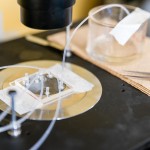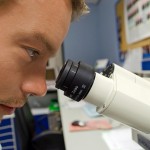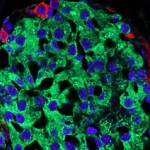Seaweed Capsules May Lead to Injection-Free Diabetic Living
A microencapsulation method, developed by OIST researchers, offers hope to patients suffering from type 1 diabetes to return to a life free of insulin...
Discovery of Pancreatic Cell Defect Could Lead to New Diabetes Treatment
Researchers have found a cellular defect that can impair the body's ability to handle high glucose levels, pointing the way to new treatments for...
Breakthrough Will Help Stem Cell Researchers Develop New Type 1 Diabetes Therapies and More
New understanding, say researchers, will help spur advancements in stem cell research and the development of new cell therapies for diseases of the liver...
Rare Form of Diabetes Being Misdiagnosed as Type 2 Diabetes
Patients diagnosed with type 2 diabetes may actually have a rare, genetic form of diabetes. This is because the two types share symptoms --...
Recovering T Regulatory Cells in Pancreas May Restore Insulin Production in Diabetics
The key to restoring production of insulin in type I diabetic patients, previously known as juvenile diabetes, may be in recovering the population of protective cells known T regulatory cells in the lymph nodes at the "gates" of the pancreas.
Researchers Identify Mechanism in the Pancreas that Turns on Insulin Production
Researchers at the Salk Institute have discovered how a hormone turns on a series of molecular switches inside the pancreas that increases production of insulin.
Study: Latinos More Vulnerable to Fatty Pancreas, Type 2 Diabetes
In a study comparing white, black and Latino participants, Latinos are more likely to store fat in the pancreas and are less able to compensate by excreting additional insulin, a Cedars-Sinai study shows.
Researchers Create Closed-Loop Artificial Pancreas
Researchers help create a closed-loop artificial pancreas to automatically monitor blood sugar levels and administer insulin to patients with Type 1 diabetes.









